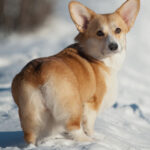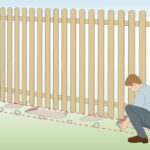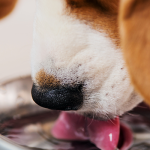Are Bobcats Dangerous To Dogs
Bobcats are one of the most fascinating animals in North America. These elusive creatures are known for their striking appearance and agile movements, but also for their fierce hunting skills. As a result, many pet owners wonder if bobcats pose a threat to their furry friends, particularly dogs. In this article, we will explore the question “are bobcats dangerous to dogs?” and provide you with all the information you need to keep your pets safe.
Firstly, it’s important to understand that bobcats are solitary hunters and typically avoid human contact. However, they do occasionally venture into residential areas in search of food or shelter, especially in suburban and rural areas where their natural habitat has been disturbed. While bobcats may not seek out confrontation with dogs, they can become aggressive if they feel threatened or cornered.
One of the biggest factors that determine whether bobcats pose a danger to dogs is the size of the dog itself. Bobcats are typically between 15-35 pounds (7-16 kg) and stand around 2 feet tall at the shoulder. They are formidable predators and can take down prey much larger than themselves, including deer and livestock. However, they are unlikely to attack large dog breeds such as German Shepherds or Great Danes unless provoked.
Smaller dog breeds such as Yorkies, Chihuahuas, or Shih Tzus may be more vulnerable to bobcat attacks due to their petite size. A bobcat could easily overpower a small dog and cause fatal injuries. Similarly, puppies or elderly dogs may also be at risk due to their weaker immune systems or limited mobility.
Another factor that affects whether bobcats pose a threat to dogs is the location of your residence. If you live in an area where bobcats are known to roam freely, such as near a forested region or a national park, you should take extra precautions when walking your dog outdoors. Make sure your dog is on a leash at all times and keep them close to you. Avoid walking your dog during dawn or dusk, as this is when bobcats are most active.
Moreover, it’s important to keep your yard secure if you live in an area where bobcats are present. Make sure your fence is tall enough to prevent bobcats from jumping over it, and consider installing motion-activated lights or sprinklers to deter them from entering your property. Keep your trash cans securely closed and avoid leaving pet food outside, as this can attract bobcats and other predators.
In conclusion, while bobcats may not actively seek out dogs as prey, they can become aggressive if they feel threatened or provoked. Small or vulnerable dog breeds may be at higher risk of injury or death from a bobcat attack. As a responsible pet owner, it’s important to take precautionary measures to keep your pets safe from potential danger. By keeping your dog on a leash, securing your yard, and avoiding areas where bobcats are known to roam freely, you can reduce the risk of a dangerous encounter between your dog and a bobcat.



